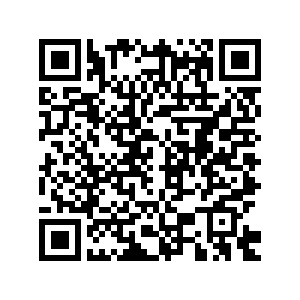WASHINGTON, Sept. 28 (Xinhua) -- The suspension and subsequent return of a late-night talk show of American Broadcasting Company (ABC) have sparked a heated debate on free speech in the United States.
ABC's "Jimmy Kimmel Live!" went back on the air Tuesday night, nearly a week after being suspended over remarks about the killing of Charlie Kirk, a conservative activist and influencer.
"It was never my intention to make light of the murder of a young man," Jimmy Kimmel, the host of the show, said on Tuesday night. "This show isn't important. What's important is that we get to live in a country that allows us to have a show like this."
U.S. President Donald Trump, a friend and ally of Kirk, slammed ABC for bringing the show back. "I can't believe ABC Fake News gave Jimmy Kimmel his job back," Trump posted on Truth Social. "The White House was told by ABC that his show was canceled!"
In a monologue on Sept. 15, Kimmel suggested that Tyler Robinson, the suspect in Kirk's killing, could have been a pro-Trump Republican. "The MAGA Gang (is) desperately trying to characterize this kid who murdered Charlie Kirk as anything other than one of them and doing everything they can to score political points from it," he said.
On Sept. 17, ABC, one of the major television networks in the United States, announced that it was suspending the show "indefinitely" after Kimmel's comment.
Critics argued that suspending the show amounts to an infringement on free speech, especially if government or regulatory pressure or threats are involved. Some contended that if this kind of expression is suppressed, it could weaken the public's ability to criticize or hold those in power accountable.
For those who support the suspension, the move was seen as a reasonable disciplinary or business decision rather than an act of government suppression of free speech. Some conservatives argued that holding Kimmel accountable for his controversial remarks is not the same as "cancel culture."
The show's suspension came amid multiple dismissals of individuals who've made what were deemed inappropriate online remarks regarding Kirk's death.
A Middle Tennessee State University employee was fired for writing that they had "ZERO sympathy" for Kirk's murder.
Nancy Mace, Congresswoman from South Carolina, pushed for the firing of a public school teacher who praised Kirk's death on social media. The employee was later dismissed. She also pushed to cut off federal funding for any school that excuses or glorifies Kirk's death.
Some private companies have fired employees for their allegedly controversial media posts about the incident. The nation's three biggest airlines -- Delta Air Lines, American Airlines and United Airlines -- reported the suspension of workers for making insensitive social media posts on Kirk's killing.
The issue is more complicated with employees in the public sector.
The Supreme Court in 1987 decided in favor of a government employee who, following the assassination attempt on President Ronald Reagan, told a coworker she hoped the next attempt would be successful.
At the same time, Republicans and conservatives have for years said that social media censors their viewpoints, mainstream media are blatantly biased against them and that conservative students face discrimination on campus.
Some worry that this tit-for-tat mentality could spiral out of control, ultimately undermining everyone's right to free speech, regardless of political affiliation.
Clay Ramsay, a researcher at the Center for International and Security Studies at the University of Maryland, told Xinhua that Americans "have amnesia about the many past efforts to control people's speech and conduct in the United States."
He noted the struggle against left-wing expression in the Red Scare from 1917 to 1920, and a nationwide ban on the manufacture, sale and transportation of alcoholic beverages in the United States that lasted from 1920 to 1933.
"Freedom of speech on university campuses was curtailed considerably in the 1950s, and the struggle to recover it did not really begin until 1962," Ramsay said, adding that blacklisting of figures in the movies, TV and radio was standard practice during the same period.
"The new element today is social media. Anyone can publicly post a long audit trail of political statements that is widely accessible. The temptation to 'dox' is today's version of blacklisting," Ramsay said. ■
